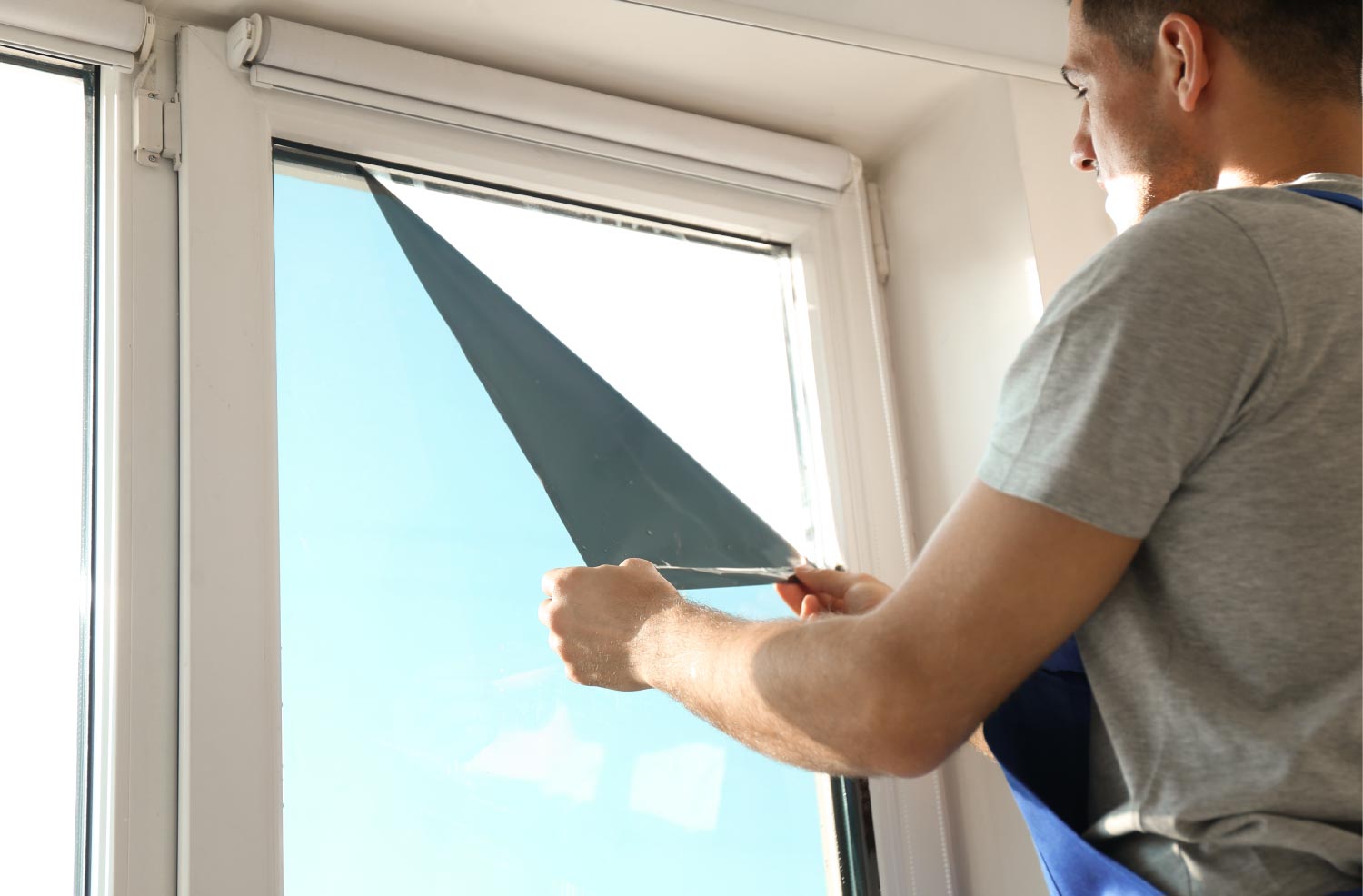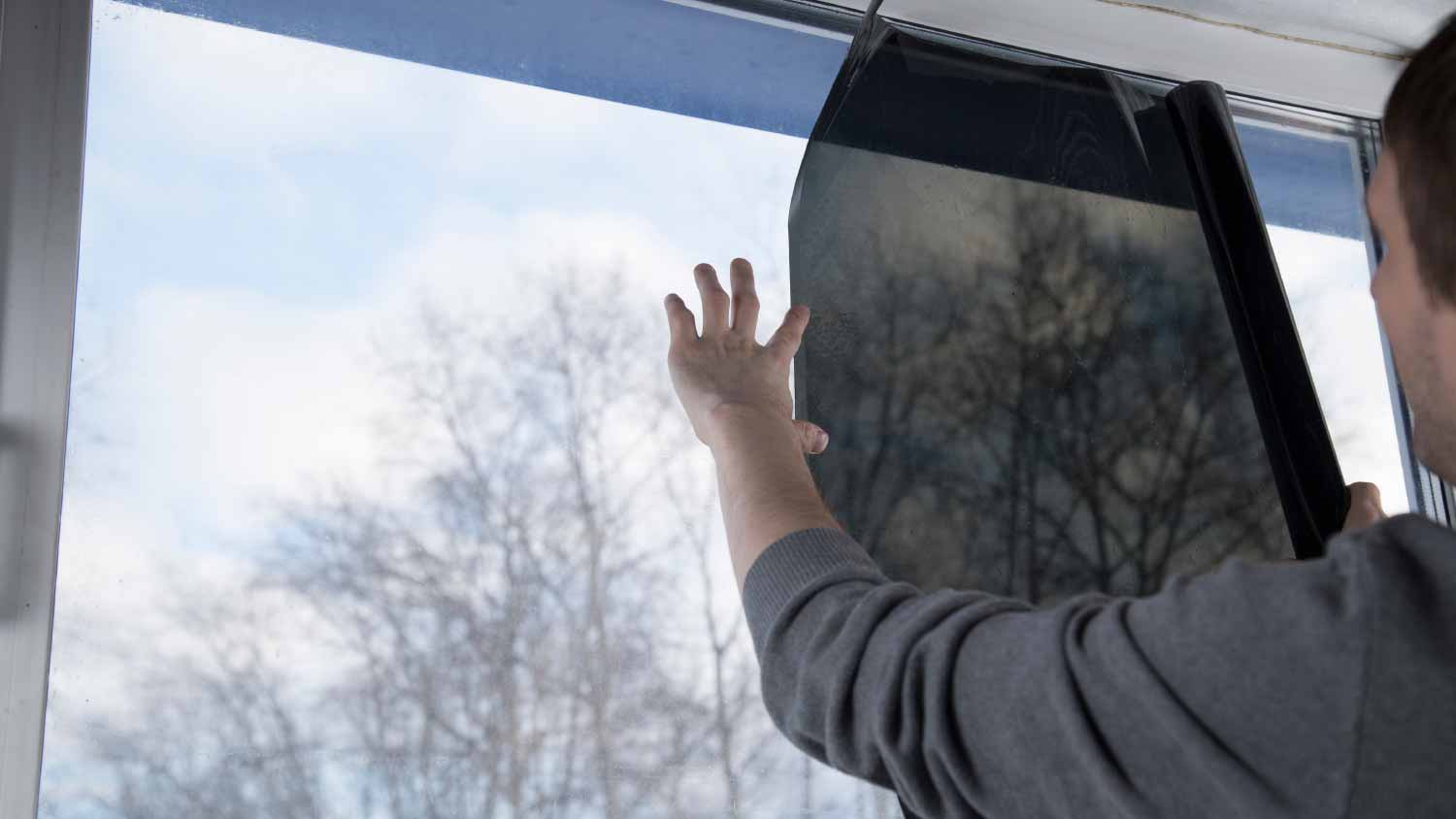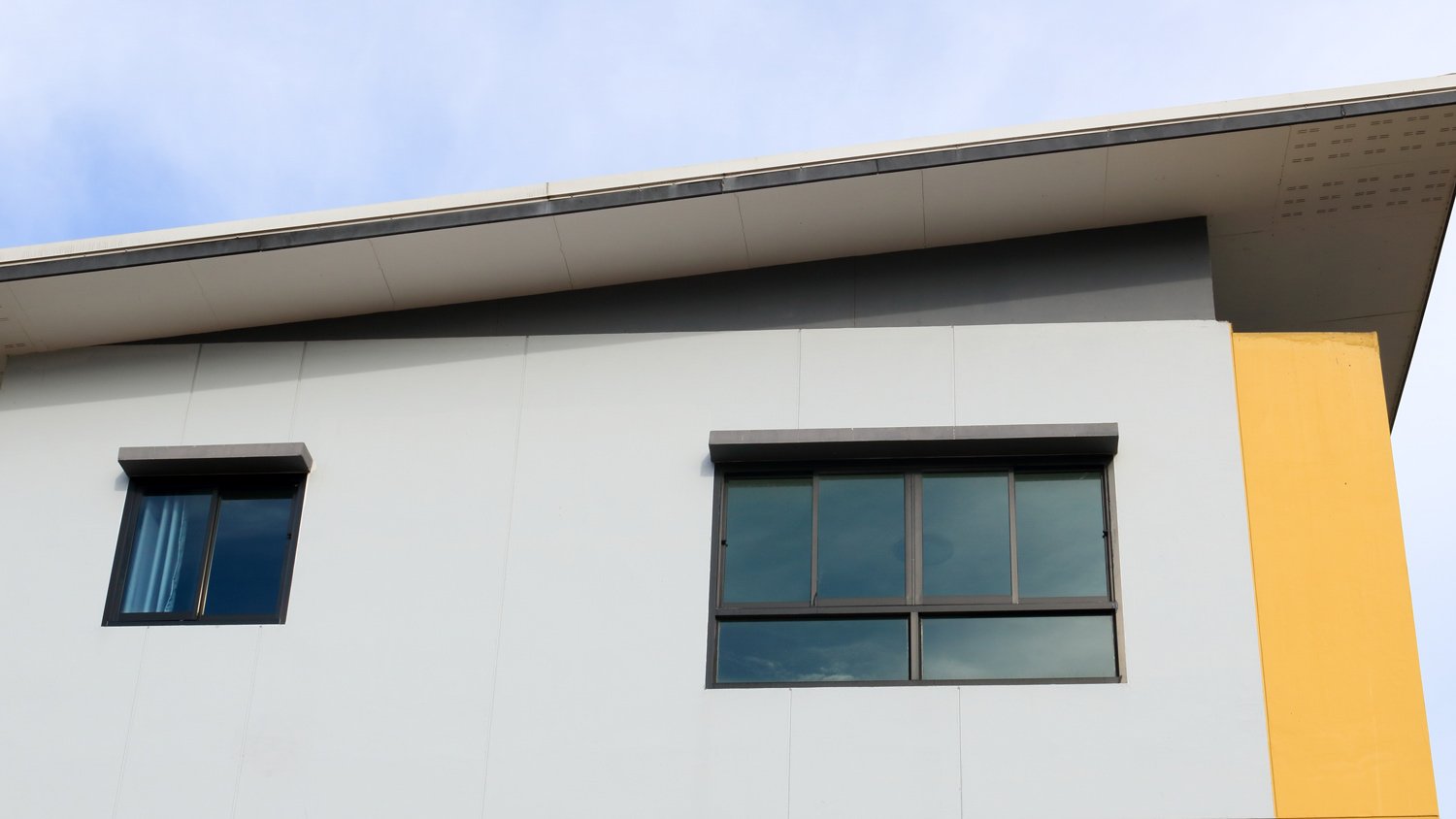
Find out the average home window tinting cost, key price factors, and ways to save. Get transparent estimates for your window tinting project.
Window tinting isn’t only for cars—learn what it can do for your home too


The average homeowner pays $590 for window tinting, but it can help reduce energy costs and increase privacy.
Tinted windows can reduce glare, which can be beneficial in rooms with TVs or computer screens.
In some cases, window tinting can void your window warranty so check the manufacturer’s manual first.
Though cars might come to mind when you think about tinted windows, you can tint your home windows, too. It’s actually not that different depending on the type of film you choose.
Home window tinting blocks out sunlight and prevents outsiders from seeing into your home. This window treatment can reduce your energy costs, add style, reduce glare, and increase your property value. Keep in mind, however, that window tinting can sometimes void your warranty, and it’s not the best choice for every window. Here’s what you need to know.

Unlike the stained glass you might find in a cathedral window, home window tinting doesn’t typically happen during the glass manufacturing process. It’s actually a film that’s applied to glass panes after they’re made. This film typically comes in a sheet, but you can also find spray tint for house windows.
Window tint film is available in varying darkness, opacities, colors, and designs. It can either be permanent, semi-permanent, or temporary, which makes it a great option for renters and homeowners alike.
Window tinting isn’t a solution for everyone, but many homeowners appreciate the benefits (even if it’s just knowing that your neighbor won’t be able to see you binging TV on your couch).
If installed correctly, window tinting can save you money on your energy bills by insulating your windows. During the summer months, tinted windows can keep your indoors naturally cooler, reducing the need to blast the AC. The same can go for colder months when window tinting can help keep heat inside.
You may want to tint your windows to keep nosy neighbors from watching you on your couch. Tinting windows can obscure sight and make it difficult to see from the outside.
Window tinting can actually protect your glass from shattering and could provide added security during natural disasters or potential break-ins.
Who doesn’t hate a big glare on your TV when trying to watch your favorite show? Window tinting is a great alternative to shades and blinds, which can decrease the glare without leaving you in a darkened room.
Window tinting can potentially add value to your home and increase the overall curb appeal, especially when paired with other energy-efficient upgrades like new windows and doors.
Tinting windows isn’t always the best option. Keep these cons in mind when shopping around.
If you’re adding tinting to recently installed windows, carefully read the manufacturer’s manual to see if they are compatible with tinting. Because of the additional heat window, tinting applies to the glass, it could crack under pressure.
If you ever change your mind about window tinting, you may need to hire a professional to remove it or replace the window altogether.
Window tinting can’t be applied to all types of windows. Basic flat glass or insulated glass are the best two options, but it doesn’t hurt to check with a pro first.
Outside of temporary window tinting, most options will require a professional to install them. This ensures proper coverage, window compatibility, and optimal efficiency.
You’ll need to budget extra for your window replacement costs if you want to add window tinting, especially for higher-end options like smart glass.
Depending on your goals with window tinting—privacy, energy savings, or better insulation—there are alternatives that might be better suited to your situation. Consider the following:
Cellular shades: Cellular shades are hung on the inside of the window and have a honeycomb texture that creates air pockets between the window and your home. This air-trapping insulation helps to boost your home’s energy efficiency.
Low-E coatings: Low-E (short for “low-emissivity”) window coatings are transparent but still reflect heat. These won’t help you if you’re looking for increased privacy, but they can help reduce heat transfer.
Triple-pane windows: These windows are a more expensive option, but you could opt to swap out your existing windows. Compared to single- or double-pane windows, triple-pane models offer superior energy efficiency.
Window tinting could be a smart option for your home if you want to prioritize privacy and safety. It’s also a good idea to invest in window film that helps with insulation so you can save money on your energy bills.
That said, if you live somewhere cold and cloudy, window tinting could limit the amount of sunlight you get in your home. You might have indoor plants or simply wish for your own vitamin D during the spring and summer. A local window tinting service can help you review the different shades of tint, hopefully preserving sunlight in your home where you want it most.
Finally, you should know that not every type of film works with every type of window, and in some cases, window tint can void your warranty (so definitely read the fine print). A lot of this has to do with heat absorption. Solar films can put your windows under a lot of thermal stress, which can make them crack.
While tint works on most common window types, use extreme caution applying solar tint to:
Clear glass that’s thicker than three-eighth inches
Single-pane glass larger than 100 square feet
Double-pane glass larger than 40 square feet
Tinted glass thicker than one-fourth inches
Triple-pane glass
Laminated glass window
Window frames made of concrete, solid aluminum, or solid steel
Reflective wired, textured, or patterned glass
Laminated glass windows
Glass with hardened sealant or glazing
Chipped, damaged, or cracked glass
From average costs to expert advice, get all the answers you need to get your job done.

Find out the average home window tinting cost, key price factors, and ways to save. Get transparent estimates for your window tinting project.

Discover window security film installation costs. Learn about average prices, cost factors, and ways to save on your home security upgrade.

Our guide walks you through how to remove window tint from home windows, including peeling the film and wiping away the adhesive.

Window tints can increase your home's privacy, efficiency, and comfort. Here are eight types of window tints and the pros and cons of each.

Unleash your inner DIY maven and learn how to tint windows at home. We share the best ways to achieve flawless results. Grab your squeegee!